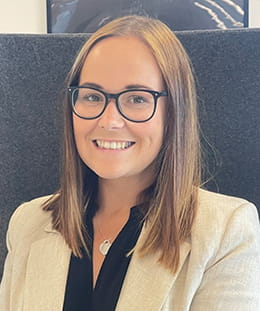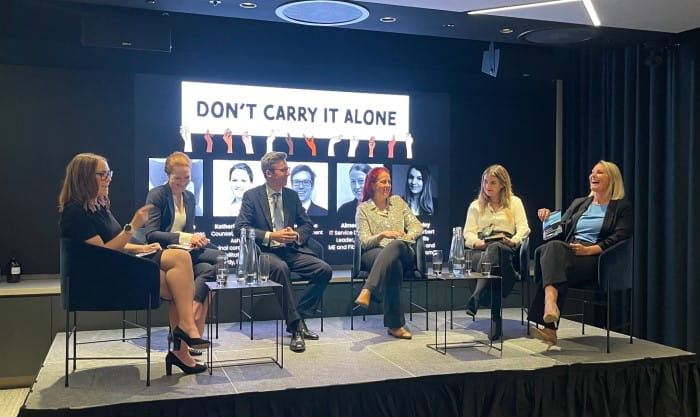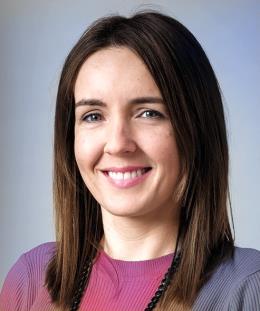
Who We Are
Don’t Carry It Alone – Rebecca Owen
In the UK alone some 15 million people (about a third of the adult population) are currently living with one or more long-term conditions which are managed with drugs and other treatments and for which there is currently no cure.
Living with a chronic condition can have a significant impact on one's working life and leave sufferers feeling socially isolated, stigmatised, and anxious about the future.
Rebecca Owen, Ashurst Senior Manager, Talent Acquisition, founded 'Don't Carry It Alone' in 2021 to support those living with chronic conditions, following her own personal battle with endometriosis.
We caught up with Rebecca to find out more about the group and to understand what can be done to support colleagues living with long-term conditions.
Why did you start the Don't Carry It Alone network?
In August 2021, I shared, on my LinkedIn account, a photo of myself lying in a hospital bed after surgery for endometriosis. The post was seen by thousands of people and I had an influx of messages from women wanting to share their own endometriosis stories. I was overwhelmed by the response, and soon realised that connecting with individuals who can personally relate to your journey is really powerful.

It also became clear that individuals who suffer from chronic illnesses are crying out for more awareness and support in the workplace.
Later that year, I proudly founded Don't Carry It Alone to tackle these issues head-on.
The Don't Carry It Alone launch event was held in the Ashurst London office on 4 October. How was the event and what type of feedback have you had?
I am really pleased to say that it was a huge success!
Over 100 people attended the launch and we received really positive feedback, particularly in regard to the panel discussion we hosted and our fantastic guests, Katherine Williams, Theo Varcoe, Aimee Flint, Sian Greenley and Miranda Hilton.
I am very open about my own journey with chronic illness and I'm encouraging others to be open about theirs. Chronic illnesses are often invisible and so it takes courage for an individual to open up – courage that allows employers to create a more supportive working environment for those living with chronic illnesses.
The panellists bravely shared their stories of navigating their impressive careers while managing chronic illness. By doing so, they hope to empower others to do the same.
Feedback shows that employers found it useful, as it made them think about their existing processes around disability and how they can extend similar consideration to chronic illness in the workplace.
Are there any other events in the pipeline?
At the moment, we don't have any confirmed events, but watch this space for our 2024 events! We are also planning to launch a Don't Carry It Alone podcast in the new year.
You live with endometriosis. What strategies have you put in place to cope with your condition?
I believe that one of the hardest things about living with endometriosis is that it's extremely unpredictable. I would say that my key coping strategy is all about learning to accept and live with that unpredictability.

Individuals who suffer from chronic conditions often struggle with their mental health. I have found that exercise and keeping fit is an important part of my life. Though when I'm in the middle of a flare-up, pain relief and hot water bottles are never too far away!
How can businesses better support employees who are living with chronic conditions?
Chronic illness is often overlooked in diversity discussions in the workplace. Don't Carry It Alone encourages employers to carve out a discrete identity for chronic illness within their businesses, to ensure that employees living with chronic conditions are seen and valued.
If employers do this, their employees are more likely to be open about how a chronic condition impacts day-to-day life and working patterns. Employers should not shy away from what can often feel like an uncomfortable conversation: talking is often an extremely powerful tool and is essential if individuals are to feel valued and supported.
Employers should look to educate themselves about how chronic illness impacts their workforce. They will then be equipped for conversations with those employees who may require bespoke adjustments.
Follow Rebecca on LinkedIn for updates.
